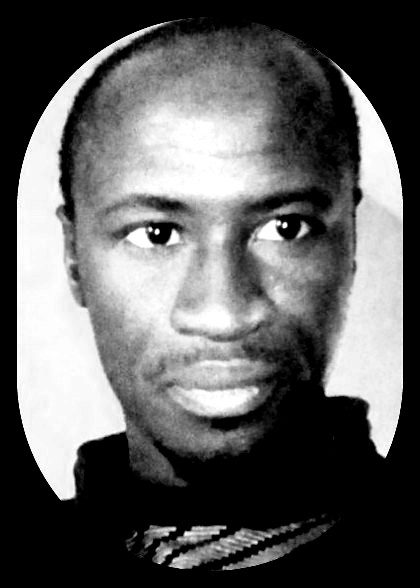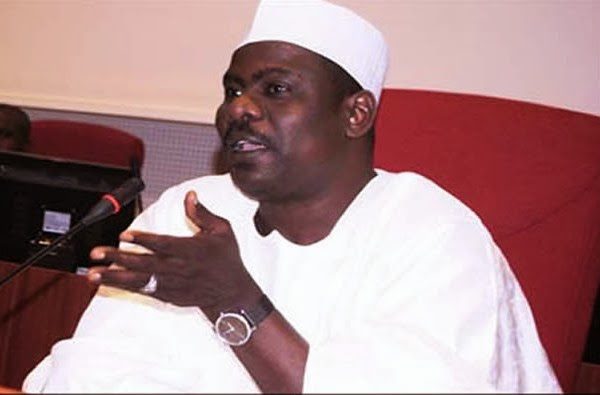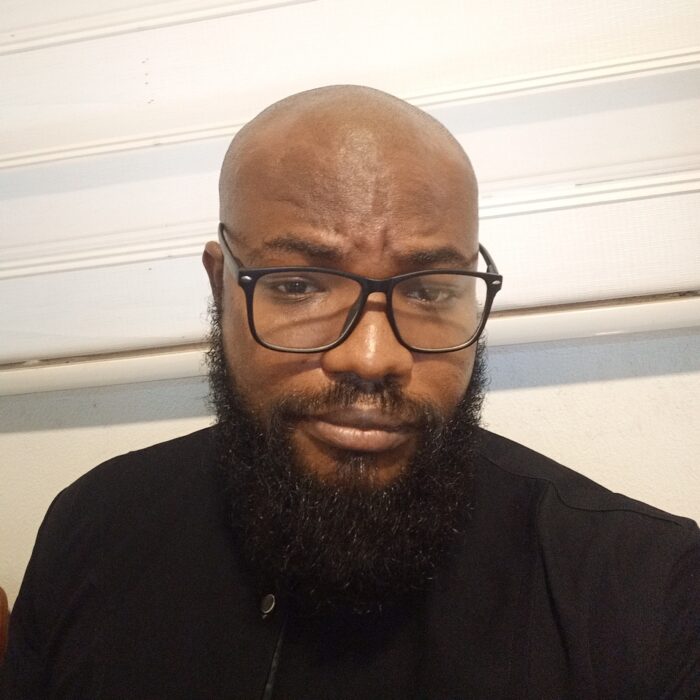National Issues
The Speechless Tongue of the North -By Ismail Misbahu

As the saying goes “the fool speaks, the wise man listens.” Does it means that those who have the monopoly of the media, and could air their voice out are fool? Does it also contrarily means that those who do not invest much in the media to pour their voice out are wise? Certainly NO. The ironical proverb seems misleading. To Yoruba, “he who eats well should either speak well or it is the question of insanity.”! It is too obvious that the north eats well but can’t speak — and so it has gone insane!
The voiceless of the north and the mute of its marginally functioning local media has never been a preference to the saying that “when deeds speak, words are nothing.” Rather it’s the nothingless of the north that undue its deeds! Its speechless tongue has caused to bear a serious burden on its humanity.
It’s scary that a month-old incidence at Lekki Toll Gate that’s still seemingly contestable has overshadowed the years-old grisly killings, gory attacks and kidnapping of innocent citizens in the north. An incidence that occurred in an area with 755 km2 (292 sq mi), and a population of about 401,272 would cast the gloom over a region that has the largest land area coverage and of course, population. It’s easy with all media hype, as demonstrated by the southern media puffery, to see how the misfortune incidence at Lekki carried the weight of the national dailies to a greater disadvantage of the most psychologically traumatic northern tragedy.

Virtually all the popular southern media including the national dailies, as well as other local tabloid reporters and broadcast media, have puffed up the incidence with terms like “Lekki killings”, ” Lekki Massacre”, “Lekki Shooting” etc. In less than a month i.e. between October, 20 to November, 20, the attention of the whole World has been called upon, not only to render voice to the incidence but also to penalize the excesses of Nigerian security agencies. Similar insinuations also reflect in the story palaver of the southern Kaduna media reportage on insecurity vis-à-vis the northern part of the state. Indeed this question of southern-versus-northern media bias is so everywhere in the country.
Although the media coverage on Lekki incidence is ‘all of a dither’, lacking the factual prove of evidence, the laxity and levity of the law enforcement agencies, as Baba Ahmed observed, have flopped the heart of the Federal Government’s obligation “to account to a nation that had just gone through horrendous trauma.” Beyond the media bias, the government and its policing institutions shouldn’t fail to respect their duty and account to laws and citizens.
As any discerning observer could see, the use of the military, and excesses of the law enforcement agencies, were not only associated with Lekki incidence. Much has not been conveyed or even covered by the media on the earlier instances that occurred in the course of fighting Boko Haram, cattle rustlers, as well as other various occurrences on Shite/security encounters. Much has also not been covered by the media on the more recent, and currently ongoing incidences, on fighting local armed bandits and kidnappers in Zamfara, Katsina, and of course Zaria — Kaduna. Indeed the meagre reports by the local media in these areas are not only fallen short of information, but also more exclusively, the voice of the poor victim living in the remote rural areas hardly been recorded or heard enough!
To be sincere, the woes and travails bewildering the north, as Abdulbassit Kassim observed, “hardly get national or global attention unless the news is circulated in the southern media. #EndSars and #SecureNorth are the latest examples for testing the north to south divide in media coverage.”
However, it may interest someone to ask why despite the technological breakthrough and increasing online media space, the north still succumbs — not been able to resist the temptation of voice paucity in its currently bursting media outlets? This writer may be one of the few people who argue that, though the question of ‘southern media bias’ has a long history — perhaps as old as the colonial period or even much earlier, this “bias” was not promoted because the north couldn’t produce or invest in media industry. To me, (and I may be wrong though), this ‘southern media bias’ got profited by the ill-fated northern levity and negligence. Other factors are reserved for now!
To avoid getting annoyed, I may not be curious to dig deeper and interrogate the more important question, as to why had the north, despite its Islamic literary learning, failed to balance the existing parity in newspaper reportage, using Arabic Ajami — that preceded the Romance alphabeticals — which only came through contact with the Europeans? This question is important as it weakens the claim that the north is lagged behind because of the sharp differences on literacy rate. Beyond the question of unequal literacy rate, the widely preoccupied idea that Western education reached the south before the north had a serious implication on the spirit of northern media production. It’s preoccupied that the growing rate of literacy in the south was due to the fact that Western education enriched talents in the region than in the north. Though this claim may not be erred, it’s however, mistaken to hold on to this claim for about a century by now.
The question of northern literacy rate is of marginal significance at present, if not ridiculous. Because the basis for rating its statistical variables often disregards the relevance of growing school population in the region. In the supplementary note of Nigeria statistics.com, literacy is a term applied to “an individual who attended schooling higher than the secondary level, and a woman who can read a whole sentence or part of a sentence.”
By looking at the above definition however, it could be seen that the latest update of the Nigerian literacy rate (i.e. as at 2018) could hardly stand the actual reality of the north. It has it that, of all the six (6) geo-political zones of the country, the southwest represented the highest literacy figure with 89% for male and 80.6% for female. It is followed by south-south with 88.5% for male and 79% for female, while the southeast remained the lowest in the southern region with 86.7% for male and 79.3% for female. In the north, the figures are relatively lower. Whereas the North Central represented the highest figure with 72.9% for male and 49.6% for female, the Northeast presented 50.5% for male and 31.8% for female, and the northwest remained the lowest with 59% for male and 29% for female.
Judging from the definition of literacy as presented earlier, it could be said that the 2018 literacy rate simply misrepresented the north. If at all population matters in the above analysis, and the population of the north that has always been on the increase including school children population, the north-south literacy rate shouldn’t go beyond the 50-50 marging. The 2013 figures presented by UNICEF which was still in use as at 2017 maintains that, of the 10.5 million of Nigeria’s children out of school i.e. aged 5-14 years, the north represented the net rate of 53%. This means that 47% of this figure are in the south.
Also of the total children population in the country, only 61% of the children aged 6-11 year-olds regularly attend primary school and only 35.6% of children aged 36-59 months receive early childhood education for the whole nation.
In specific terms, states in the north-east and north-west have female primary net attendance rates of 47.7% and 47.3% respectively. This means that though some of these girls could read out a sentence or two, more than half of them are not in school. On the contrary, 29% and 35% of Muslim children in the north-eastern and north-western states respectively, receive Qur’anic education. This also means that though government considers children attending such schools to be ‘officially’ out-of-school, basic skills in literacy and numeracy has been on the increase. For details on this, follow the link in the parentheses. (https://www.unicef.org/nigeria/education).
Likewise considering the number of male students in post-secondary higher institutions, it’s clear without any speculation, that the north being the most populous region, has the most populous Universities, colleagues and polytechnics in the country. In most of these higher institutions, students of northern origin, mostly young aged 25-30 year-olds represent the largest figure. This is in addition to the advantage the north maintains with a significant proportion of its students’ population in the University of Abuja, as well as in other southern tertiary institutions like Lagos and Ibadan. This is in spite of all the socio-cultural travails associated with the region that discourage attendance in formal education, especially for girls.
Therefore, the question of literacy rate from whatever angles it’s derived at, couldn’t stand the paucity of the northern media production. The question of literacy disparity is no longer tenable because the north did not, and will never remain forever fool and ignorant! It’s better to explain the faulty from the vantage point of the region’s levity and negligence. The growing media industries in the south was not only supported by its growing literacy rate. But even more importantly, it was because of the greater support given to such industries by politicians and private entrepreneurs alike. The case of Bola Ahmed Tinubu on the growth of The Nation and TVC is a good example.
Unlike the southern media, part of the negligence of the northern media could be seen in its inability to promote reading culture through the promotion of creative writing, oral literature, poetry and short stories etc. This has a greater effect on the problem of circulation and advert promotion. This failure also directly affected the development of the northern media, because politicians and private individuals only invest in media that’s widely circulated — so much that their political or business interests could be promoted.
Far from being mere hypothesized problematics, these were the issues that set the fouling stage of northern Nigerian media since the colonial period. It’s important to note that apart from Gaskiya Ta Fi Kobo, there were numerous other provincial newspapers and magazines that were established under the North Regional Literature Agency (NORLA) — which came in existence in 1954. Some of them include Zaruma based at Sokoto, Labaran Kano Sodangi based at Kano, Himma based at Katsina, Bazazzagiya based at Zaria, Zumunta based at Bauchi, Gamzaki based at Plateau, Haske based at Niger etc. Most of these newspapers Northern Nigerian newspapers were largely published in Hausa language. Others like Ardo based at Adamawa and Albishir based at Borno were translated into Fulfulde and Kanuri respectively. Most of these newspapers were also published twice every month.
However NORLA was subsequently closed down, and most of these newspapers stopped functioning. Only Gaskiya Ta Fi Kobo survived. It was originally a periodical reporter established in 1932 as “Northern Provinces News” — Jaridar Najeriya Ta Arewa — Jaridat al- Shimaliyya. It was a 22-pages colonial government owned newspaper which was initially published four times a year and sold at half a penny (Sisi). In January, 1939, Gaskiya Ta Fi Kobo became a full-pledged Northern Nigeria Newspaper largely published in Hausa language. In 1941, a full-out sheet of Ajami form of written Hausa (popularly known in Hausa as “Yar Gaskiya” — Ajami News Sheet) was introduced to facilitate and promote wide reading. Again in this same year i.e. 1941, Suda — also an offshoot of Gaskiya Ta Fi Kobo was also introduced. It was reported that this last one was introduced to promote the British War Time propaganda in the north. This is convincing with the number of copies made available at cheaper rate.
The survival and development of Gaskiya Ta Fi Kobo had a greater turn out in the emergence and development of newspapers and magazines in northern Nigeria. Some of the papers that emerged included Daily Mail, Morning Post, Sunday Post, Maganar Kano, `Yancin Dan Adam, Amana, Maishela, Albishir, Alfijir, Zuma, Zaruma, Dillaliya, Bagaruwa, Jakadiyar Muslunci, Jakadiyar UNESCO, Sha Kallo, Daily Comet, Alkalami, Fitila, The Analyst, Triumph, Sunday Triumph, Zamani, The Nigerian Standard, The Voice, The Path, Trumpeter, The Democrat, Citizens, Nasiha, A Yau, Al-Mizan, Al-Ahram, Today, Weekly Trust, Just, Hotline, Rana, Telex, Kakaki, The Pointer, Al-Tajdid, Abuja newsweek, Nigerian Outlook, The Reporter, Mujahidah, The Pen, FIM, Tauraruwa, Taskira, Lokaci and many others. Most of these newspapers and magazine have ceased to exist. For a full details on the existing newspapers and magazines in northern Nigeria, follow the link in the parentheses (https://www.researchgate.net/publication/237773440_PRINT_AND_BROADCAST_MEDIA_IN_NORTHERN_NIGERIA)
Had these newspapers been carried along with a proper support from both private and public sector, they couldn’t have dead or remain comatose. Unlike in the south, many attempts by northern Nigerian journalists to invest in building the media industries were failed by lack, or complete absence of support from private or public sector. In the south for example, the Awolowo’s Nigerian Tribune established since 1949 has remained the oldest and most surviving private newspaper in the country. The family newspaper of Wale Aboderin, i.e. The Punch, established in 1971/73 had journalists like Sam Amuka as its resourceful partner. The same Sam Amuka also invested in Vanguard which was established in 1983. Journalists like Dr. Stanley Macebuh became resourceful partners in The Guardian of Alex Ibru, also established in 1983.
Also the production of various other magazines was championed by the southern newspapers. For example, it was the Daily Times Group that produced The Spear and International in 1962 and 1974 respectively. Happy Hour and Family Health was produced by Sam Amuka in 1971. The Punch Group produced the Super and the Ophea in the 1980s. Concord was produced by MKO Abiola in 1984, and the following year, i.e. in 1985, the same Concord Group produced the African Concord.
It should be noted that even the most popular northern newspapers that were produced at the mid period of Zamanin Siyasa (the era of Western style party politics), like the Daily Comet, were the offshoots of their southern mothers. Daily Comet — the NEPU radical wing newspaper based at Kano was the Zikist offshoot that emerged in the 1950s to defend and promote the interest of the Talakawa, as well as to challenge the excesses and misrepresentation of NEPU by the NPC news magazine, The Mail. It was not until 1990 that a meaningful engagement with the media industries in the north began to appear. This is in spite of the fact that the region also produced journalists like Adamu Haroun al-Rashid, Magaji Dan Batta, Adamu Ciroma, Mamman Daura and lately, people like Dan Agbese, Mohammed Haruna Ndajika, Adamu Adamu, Yakubu Muhammed, Abdulkarim Baba Aminu and many more.
Although there were various failed attempts as demonstrated by the effort of Mohammed Haruna Ndajika, who co-founded The Citizen in 1990. But, as a matter of fact, the newspaper ran out of fund and eventually collapsed in 1994. Such attempts have not been supported or carried along for quite a long time, and therefore many of which were not brought to fruition. Magazines like The Hotline produced by Alh. Hassan Kwantagora in 1985, The Analyst and host of other local newspaper tabloids have faced the same challenge.
It was not until recently in 2000s that other newspaper tabloids began to appear, and are making effort to resuscitate the media industry through the promotion of creative writing, poetry and book reviews. The activities of journalists like Ibrahim Scheme and Zainab Suleiman Okino both working with the blueprint, — a newspaper established in 2011 provided a good example. Others like People’s Daily — initially a weekly reporter in 2008 and later became daily in November, 2009, and the Jaafar Jaafar 2016 best seller, the Daily Nigerian, all could stand the challenge of time.
Although these media firmly stand to confront the challenge of the 21st century internet media spacing by promoting online news publication, quite number of their state-based news platforms like Yerwa Express, Katsina Post, the Caliphate and others including the newly established Sahelian Times were reduced to mere champions of local politics.
Northern Nigeria can also boast of having at least six foreign broadcast media agencies, broadcasting in Hausa language. These include BBC Hausa, DW Hausa, RFI Hausa, VOA Hausa, Pars Hausa, and TRT Hausa. This is in addition to the Hausa division of online print media like Sahara Reporters Hausa, Premium Times Hausa , Legit Hausa etcetera.
So the question now is, why despite all these media outlets, the voice of the north is still been shrouded? Why the speechless tongue?
If politicians like Ahmed Bola Tinubu could invest and promote the development of media industry in the southwest, why the likes of him, the ex northern governors and head of states couldn’t do the same? Why the northern politicians and also businessmen like Alh. Atiku Abukar couldn’t do the same? Why other northern business moguls like Alh. Aliko Dangote, Dan Tata, Abdulsamad Rabiu of Bua Group, Mangal and many more couldn’t do the same? If these elite burst enough to show what they have invested in tge health and education sectors, they should also at least render support for the media.
On the whole, far from the question of Western education and growth in literacy rate, the north, had the better opportunity to promote northern literacy and transform the media industry in the region. Levity and negligence from among its political and elite business class have held so much of the fault than what’s been widely promoted.
Time will tell, and God bless Northern Nigeria! God bless Nigeria as a whole!!
Ismail Misbahu could be reached via:
ismailmusbahu15@gmail.com
mhssey2015@gmail.com




















